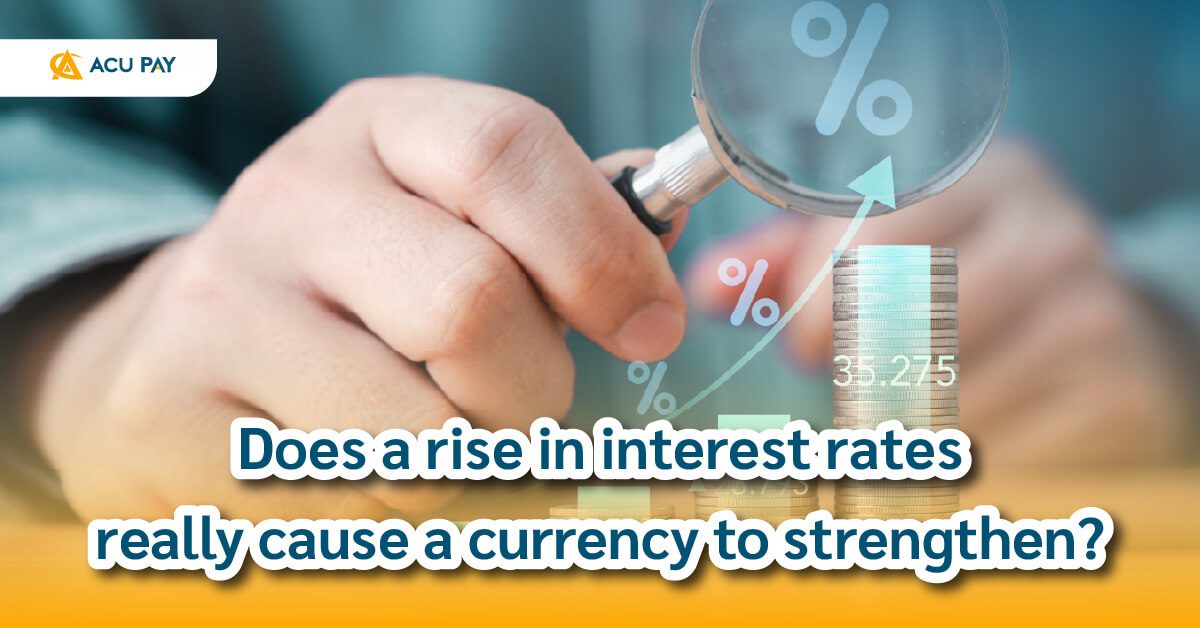

Whenever a central bank of any country raises interest rates, a common follow-up question is whether that country’s currency will “strengthen.” Theoretically, the answer is yes—but in
practice, it’s more complicated. We can’t say with 100% certainty that an interest rate hike will always result in a stronger currency.
According to basic economic principles, when interest rates rise, the return on assets denominated in that currency—such as government bonds, deposits, or other financial instruments—increases. This attracts both domestic and foreign investors who want to benefit from the higher returns.
To invest, foreign investors first need to exchange their currency into the local currency. For example, if the U.S. Federal Reserve (FED) raises interest rates, global investors would need to buy U.S. dollars to purchase U.S. bonds. The increased demand for the dollar then leads to its appreciation.
In some cases, central banks may not want their currency to strengthen too much, as it can hurt exports. To counter this, they may intervene in the foreign exchange market by selling their own currency to weaken it, or by using other measures to keep it from appreciating too rapidly.
Each country’s central bank has different economic objectives. Some, like those in Thailand, Japan, or China, aim to maintain currency stability to support trade. A currency that is too strong can negatively impact exports, as it makes goods more expensive to foreign buyers.
In such situations, the central bank might “intervene in the currency market,” for example, by selling their own currency to increase supply and reduce its value, or to soften rapid appreciation. This can help bring the currency back to a level more supportive of the economy.
If the broader economy remains weak—such as slowing GDP growth, rising unemployment, declining domestic consumption, or reduced business investment—then even high interest rates may not attract capital inflows. Investors may perceive the risks as outweighing the returns.
Additionally, if markets expect that the central bank won’t be able to maintain high interest rates for long—or may need to lower them again to support the economy—then investors may avoid holding that currency long term. As a result, the currency may not strengthen as expected or may even continue to weaken.
If inflation remains high, a rise in interest rates might still not be enough to stabilize the economy. Investors may continue to view the economic situation as risky, leading to currency depreciation instead of appreciation.
Generally speaking, higher interest rates do tend to strengthen a currency because they attract foreign investors. However, in reality, currency movements are influenced by many factors beyond interest rates. To truly understand currency trends, one must look at the overall economic picture and global financial market dynamics—not just interest rate movements alone.

ให้ทุกเรื่องการเงินเป็นเรื่องง่าย เริ่มต้นวันดีๆ ไปกับเรา MAKE A GREAT DAY WITH ACU PAY